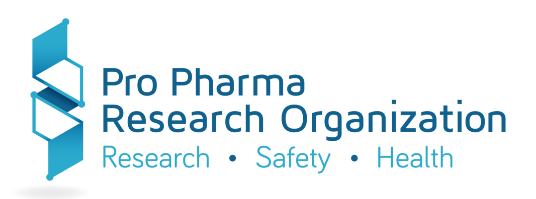
Mastering Observational Studies in Healthcare: Types, Applications, and Best Practices
Introduction to Observational Studies in Healthcare
Observational studies in healthcare involve the systematic collection and analysis of data from individuals or populations without intervention by the researcher. Unlike experimental studies where researchers manipulate variables, observational studies rely on naturally occurring events to observe associations and outcomes.
Definition and Significance
Observational studies play a fundamental role in health research by providing evidence on the effectiveness and safety of medical interventions, identifying risk factors for diseases, and exploring patterns of healthcare utilization. They complement clinical trials by offering information on the long-term effects and real-world applicability of interventions.

Types of Observational Studies
There are several types of observational studies, some of which are outlined below:
- Cohort Studies: Follow a group of individuals over time to assess the development of diseases or outcomes. Example: The Nurses' Health Study, which has provided information on risk factors for chronic diseases such as cancer and cardiovascular diseases.
- Case-Control Studies: Compare individuals with a certain condition (cases) to those without the condition (controls) to identify possible risk factors. Example: The British Doctors Study, which demonstrated the link between smoking and lung cancer.
- Cross-Sectional Studies: Evaluate the prevalence of diseases or outcomes at a single point in time. Example: the National Health and Nutrition Examination Survey (NHANES), which collects data on the health and nutrition status of the U.S. population.
- Ecological Studies: Analyze population-level data to explore associations between variables. Example: The Framingham Heart Study, which identified risk factors for cardiovascular diseases at the community level.
- Longitudinal Studies: Follow individuals or cohorts over an extended period to examine changes in health status or outcomes. Example: The Whitehall Studies, which investigated the social determinants of health and disease among British civil servants.

Advantages and Disadvantages in Healthcare Research
Advantages:
- Real-world applicability: Observational studies reflect routine clinical practice, making their findings directly applicable to real-world health settings.
- Cost-effectiveness: Compared to clinical trials, observational studies are often less costly and time-consuming, allowing researchers to study large populations over extended periods.
- Study of rare diseases or outcomes: Observational studies allow the investigation of rare diseases or outcomes that may not be feasible to study in clinical trials due to ethical or logistical constraints.
Disadvantages:
- Potential for bias: Observational studies are susceptible to various biases, including selection bias, information bias, and confounding, which can distort observed associations.
- Challenges in establishing causality: Unlike experimental studies, observational studies cannot definitively establish causality as they cannot control for all potential confounding variables.
- Ethical considerations: Researchers must adhere to ethical standards to protect participants' rights and ensure informed consent procedures and confidentiality.
Examples of Notable Observational Studies in Healthcare
There are several prominent examples of observational studies in the field of healthcare that have had a significant impact on our understanding of various diseases and risk factors. The Framingham Heart Study, for instance, has been instrumental in identifying cardiovascular risk factors such as high blood pressure, cholesterol levels, and smoking, revolutionizing our understanding of cardiovascular diseases. On the other hand, the Nurses' Health Study has provided valuable information on the role of diet, lifestyle, and reproductive factors in women's health outcomes, including breast cancer and cardiovascular diseases. Likewise, the British Doctors Study conclusively demonstrated the harmful effects of smoking on health, leading to significant public health interventions to reduce its prevalence. These examples highlight the power of observational studies to generate meaningful knowledge and guide public health interventions.
Best Practices for Conducting Observational Studies in Healthcare
To effectively conduct observational studies in healthcare, it is essential to adhere to certain best practices. Firstly, careful study design selection should be made, considering research questions, population characteristics, and available resources. Additionally, implementing standardized data collection methods in clinical settings using tools and protocols to ensure consistency and accuracy of collected information is crucial. Likewise, appropriate statistical analysis techniques for health data should be applied to control for confounding variables and assess the strength of observed associations. Lastly, strict adherence to ethical guidelines, protecting patient confidentiality, and ensuring proper informed consent procedures are essential. These practices contribute to the quality and validity of observational studies in healthcare, ensuring reliable and ethically responsible results.

Conclusion
Observational studies serve as indispensable tools for advancing knowledge and practice in healthcare, providing insights into disease etiology, treatment effectiveness, and healthcare delivery. By understanding the types, applications, advantages, and best practices of observational studies, researchers can harness their full potential to improve patient outcomes and inform evidence-based healthcare policies. As we continue navigating the complexities of healthcare research, mastering observational studies remains paramount in our pursuit of better healthcare for all.
In Pro Pharma Research Organization, we specialize in offering a wide range of services to conduct observational studies in biopharmaceuticals and healthcare. From study design and protocol development to regulatory compliance, we handle every step of the process. Follow us to discover more about how we can assist you with our services!
Publication date: March 2024
Author: Pro Pharma Research Organization Team
